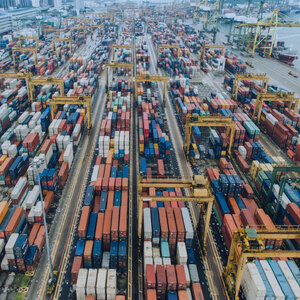
In a constantly changing environment, resilience in the supply chain is essential to ensure competitiveness and business continuity. Situations like the Panama Canal drought, the Ukraine war, or the Suez Canal crisis have global impacts on businesses. With a resilient supply chain, we will be able to face any situation with greater responsiveness and flexibility, maintaining operational stability and meeting commercial commitments. In today’s article, we will cover what a resilient supply chain is, why it is important, key factors to consider, strategies to achieve it, and the benefits it provides.
What is a resilient Supply Chain?
A resilient supply chain is defined as one that can adapt and recover quickly from adverse situations and unexpected disruptions. This type of supply chain not only withstands the initial impact of a problem but also has the capacity to reconfigure and continue operating effectively. Supply chain resilience involves flexibility, agility, and responsiveness, which are crucial to maintain business continuity and meet customer commitments.
The resilience of a supply chain is measured by its ability to anticipate potential threats, adapt to environmental changes, and recover quickly from setbacks. In a globalized context where disruptions can stem from various sources, ranging from natural disasters to economic crises or pandemics, having a resilient supply chain has become a strategic priority for companies.
The importance of resilience in the Supply Chain
Resilience in the supply chain is critical to ensuring operational stability and maintaining competitiveness in the market. Companies with resilient supply chains are better prepared to face adverse situations and minimize their impact. This not only protects revenue and profitability but also strengthens customer trust and supplier relationships.
First, resilience enables companies to respond quickly to unforeseen events, avoiding prolonged disruptions that could affect production and product delivery. This is particularly important in sectors where customer demand is constant, and any delay can result in lost sales and damage to reputation.
Additionally, resilience in the supply chain contributes to operational efficiency by enabling better resource management and more precise planning. Resilient companies can adjust their operations according to current needs, optimizing inventory use and reducing costs associated with overproduction or excessive storage.
Finally, a resilient supply chain is a key differentiator in a competitive market. Companies that demonstrate their ability to maintain stable operations and meet delivery deadlines, even in difficult situations, gain a significant competitive advantage. Resilience thus becomes a value-added factor that can attract and retain customers and strengthen the company's position in the market.
Benefits of a resilient Supply Chain
A resilient supply chain offers multiple benefits that translate into competitive and operational advantages for companies. These benefits include:
- Improved business continuity: Resilience allows companies to maintain operations during and after an unforeseen event. This ensures that products reach customers on time and commercial commitments are met, which is essential for maintaining customer trust and satisfaction.
- Cost reduction: A resilient supply chain can optimize inventory management and reduce costs associated with overstocking or product shortages. The ability to anticipate problems and adjust quickly helps avoid unnecessary expenses and improve operational efficiency.
- Enhanced flexibility and adaptability: Companies with resilient supply chains can quickly adapt to changes in market demand and environmental fluctuations. This flexibility is essential to respond to market changes and maintain competitiveness.
- Strengthened relationships with suppliers and customers: The ability to maintain stable operations and meet delivery deadlines strengthens the trust and loyalty of both suppliers and customers. A resilient supply chain fosters collaboration and effective communication, which is key to long-term success.
- Enhanced company image and reputation: Companies that effectively manage issues and demonstrate resilience are perceived as more reliable and capable. This improves their market reputation and can attract new business opportunities.
Key factors to achieve Supply Chain resilience
Achieving a resilient supply chain requires the implementation of several key factors that enable anticipation of unforeseen events and an effective response. These factors include:
Supplier diversificationHaving a diversified supplier network is essential to mitigate the risk of supply chain disruptions. Relying on a single supplier or specific geographic region can be risky, as any issue with that source can affect the entire supply chain. By diversifying suppliers, companies can ensure greater stability and flexibility in their material and product supply.
Digitalization and technology
The adoption of advanced technologies is a vital component for supply chain resilience. Digital solutions, such as supply chain planning and management software, provide real-time visibility into operations, facilitating informed and effective decision-making.
Contingency planning
Developing detailed contingency plans is crucial to ensure a quick and effective response to any disruption. These plans should include possible scenarios, response strategies, and resource allocation. Contingency planning allows companies to prepare for a variety of adverse situations and minimize their impact.
Furthermore, it is important that these plans are regularly reviewed and updated, considering changes in the environment and lessons learned from past experiences. Training staff in the implementation of these plans is also essential to ensure effective execution.
Strategies to improve Supply Chain resilience
To build a resilient supply chain, companies must implement various strategies that allow them to anticipate any situation and respond effectively. These strategies include:
Implementation of planning software
Using supply chain planning software is an essential tool to improve resilience. These systems provide comprehensive visibility into operations, allowing companies to monitor and manage their inventories, forecast demand, and optimize production and purchasing.
Risk analysis and mitigation
Conducting thorough risk analysis is crucial to identifying potential threats and developing mitigation strategies. This analysis should include both internal and external risks and consider factors such as reliance on specific suppliers, the political and economic stability of supply regions, and vulnerability to natural disasters.
Collaboration and communication with partners
Fostering collaboration and communication with supply chain partners is crucial to improving resilience. This includes suppliers, distributors, customers, and other key players like transporters and logistics operators.
Tools and technologies for a resilient Supply Chain
To build and maintain a resilient supply chain, companies can benefit from the use of various advanced tools and technologies. These include:
Demand forecasting software
Demand forecasting software allows companies to anticipate fluctuations in demand and adjust their operations accordingly. These systems use historical data, statistical analysis, and machine learning techniques to generate accurate and up-to-date forecasts.
Production planning solutions
Production planning software helps companies optimize their production processes, ensuring that resources are used efficiently and delivery deadlines are met. These systems allow detailed and coordinated planning of production activities, from raw material acquisition to the manufacture and distribution of final products.
Procurement management platforms
Procurement management softwares are essential tools to improve supply chain resilience. These platforms allow companies to manage supplier relationships, track orders, and optimize material and service procurement processes.
Boost your Supply Chain’s resilience
Building a resilient supply chain is essential to ensure business continuity and competitiveness in a globalized environment. Resilience allows companies to anticipate unforeseen events, adapt, and recover effectively, ensuring operational stability and customer satisfaction. To achieve this, strategies such as supplier diversification, digitalization with advanced technologies, and contingency planning are required. Additionally, effective collaboration and communication with partners are essential. A resilient supply chain not only protects against unexpected problems but also improves operational efficiency, reduces costs, and strengthens market positioning.
At Imperia, we offer software that can optimize the supply chain from demand forecasting to procurement management, including production planning. A fully adaptable and customizable solution according to the needs of each company and sector. If you want to learn more about our tool, don't hesitate to request a free demo.
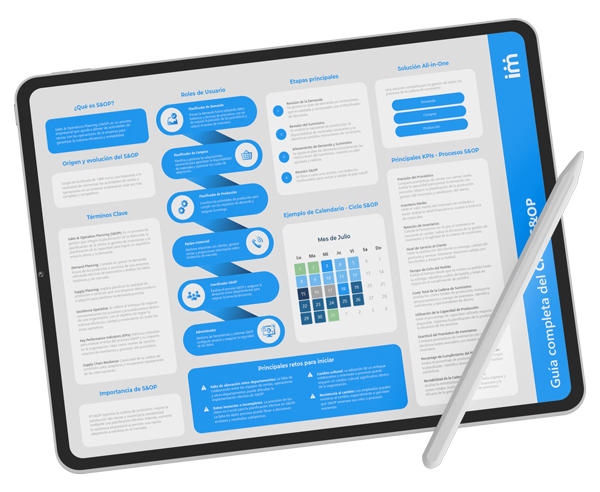
Enter your email and download the content
In supply chain management, identifying key processes and managing them on time can make the difference between success and failure.

























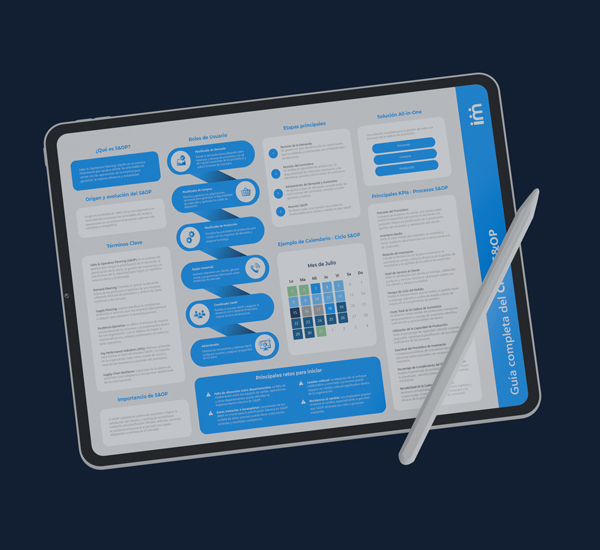















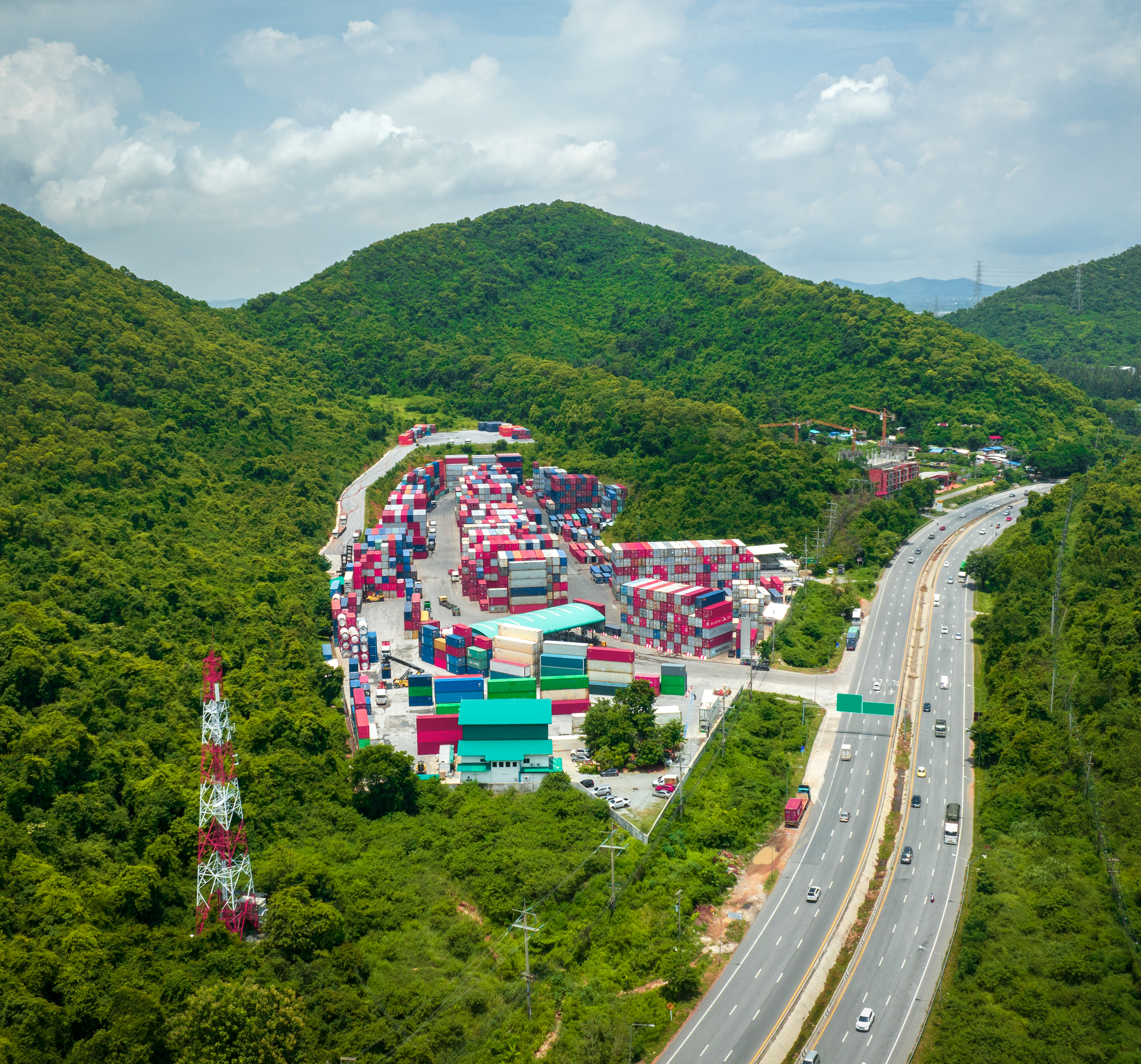



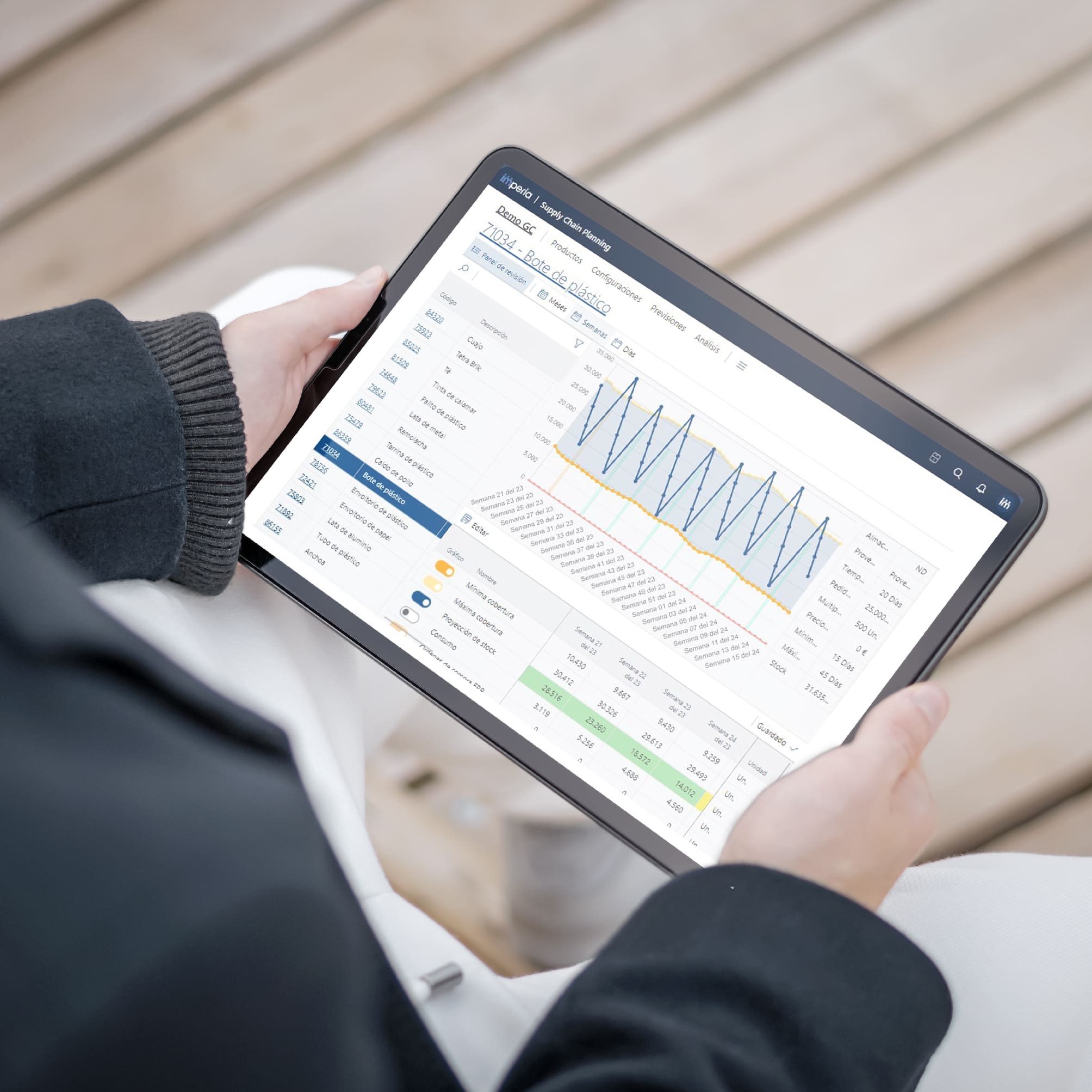















 Imperia_thumbnail.jpg)













